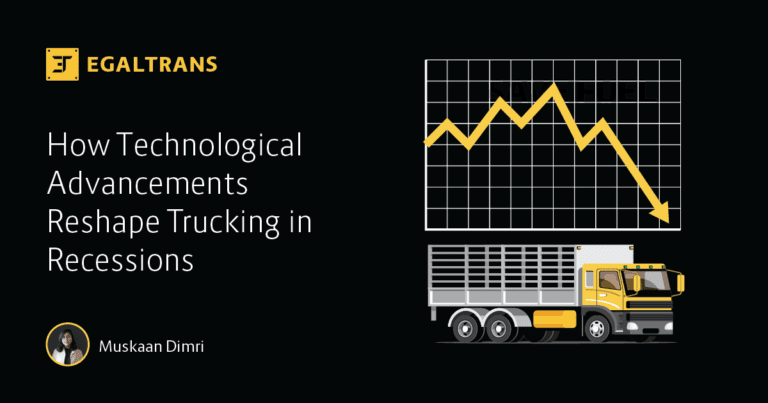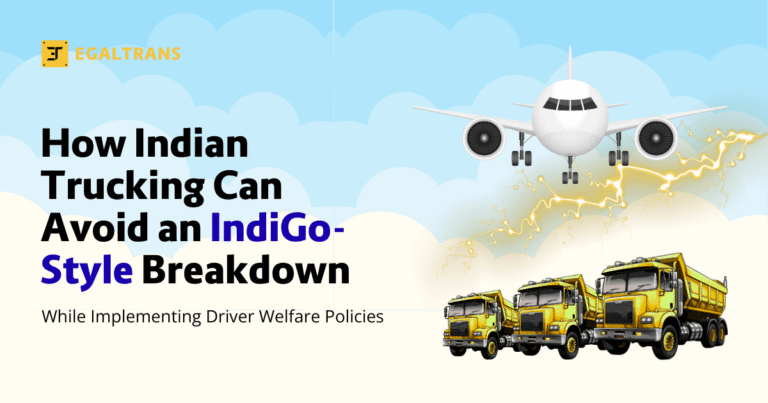In today’s rapidly advancing technological world, one would expect that fleet owners, especially in industries like transportation and logistics, would have access to seamless and integrated solutions to manage and automate their operations. However, the reality is quite different. Fleet owners continue to face challenges due to the fragmented nature of the technology landscape, relying on multiple siloed software and systems for different aspects of their business. This article explores the reasons why fleet owners still struggle in today’s technologically advanced world and highlights the need for an integrated platform to address their unique needs.
Struggle of Fleet Owners in Managing Business Operations
While technology has undoubtedly revolutionized the fleet management industry, fleet owners still face several challenges in adopting and leveraging advanced solutions. Some major problems prevalent in the industry are:
- Fragmented Technology Landscape
One of the primary reasons fleet owners face difficulties is the lack of a cohesive and integrated technology ecosystem. Currently, fleet owners often rely on a combination of fleet management software, enterprise resource planning (ERP) systems, accounting software like Tally, and other specialized tools. These disparate systems often do not communicate or integrate effectively with each other, leading to data silos, inefficient processes, and difficulties in decision-making. This causes a chaotic experience for both the fleet managers and the employees having access.
- Limited Customization Options
While there are various off-the-shelf solutions available in the market, they may not fully address the specific requirements of fleet owners in a particular region or industry. Each fleet owner operates in a unique context, with specific operational challenges, regulatory compliance needs, and customer demands. However, developing custom technology solutions can be costly and time-consuming, making it a less viable option for many fleet owners.
- Complex Operations
Managing a fleet involves a multitude of tasks, such as dispatching vehicles, monitoring routes, tracking fuel consumption, scheduling maintenance, and ensuring compliance with safety regulations. Without a unified platform that can handle these diverse aspects seamlessly, fleet owners are burdened with the challenge of coordinating and consolidating data from various sources, resulting in inefficiencies and potential errors.
- Lack of Real-time Visibility
Fleet owners need real-time visibility into their fleet’s performance and health to make informed decisions and optimize operations. However, due to the fragmented technology landscape, obtaining accurate and timely data can be a significant challenge. Fleet management software may provide some level of tracking and monitoring, but without integration with other systems, fleet owners often struggle to gain a holistic view of their operations.
- Limited Scalability
As fleet owners aim to grow their businesses and expand their operations, the existing technology infrastructure may not scale effectively. Adding new vehicles, routes, or services can strain the fragmented systems in place, leading to inefficiencies, data inconsistencies, and increased administrative overhead. Fleet owners require a flexible and scalable solution that can adapt to their evolving needs and support their growth ambitions.
The Need for an Integrated Fleet Technology
To address the challenges faced by fleet owners, there is a pressing need for an integrated platform that caters specifically to their requirements. Such a platform should encompass all aspects of fleet management, including customer management, operational planning, performance tracking, maintenance scheduling, and financial management. By integrating these functionalities into a single, unified system, fleet owners can streamline their operations and gain a comprehensive view of their business.
An integrated platform would provide fleet owners with real-time visibility into their fleet’s performance, allowing them to track key metrics, identify bottlenecks, and make data-driven decisions. It would automate routine tasks, reduce administrative burdens, and enhance operational efficiency. Additionally, such a platform could be customized to address the unique needs of fleet owners in a specific region or industry, ensuring that it aligns perfectly with their business context.
Furthermore, an integrated platform would promote collaboration and information sharing among stakeholders, such as fleet managers, drivers, maintenance personnel, and customer service teams. Improved communication and access to real-time data would lead to better coordination, increased productivity, and enhanced customer experience.







